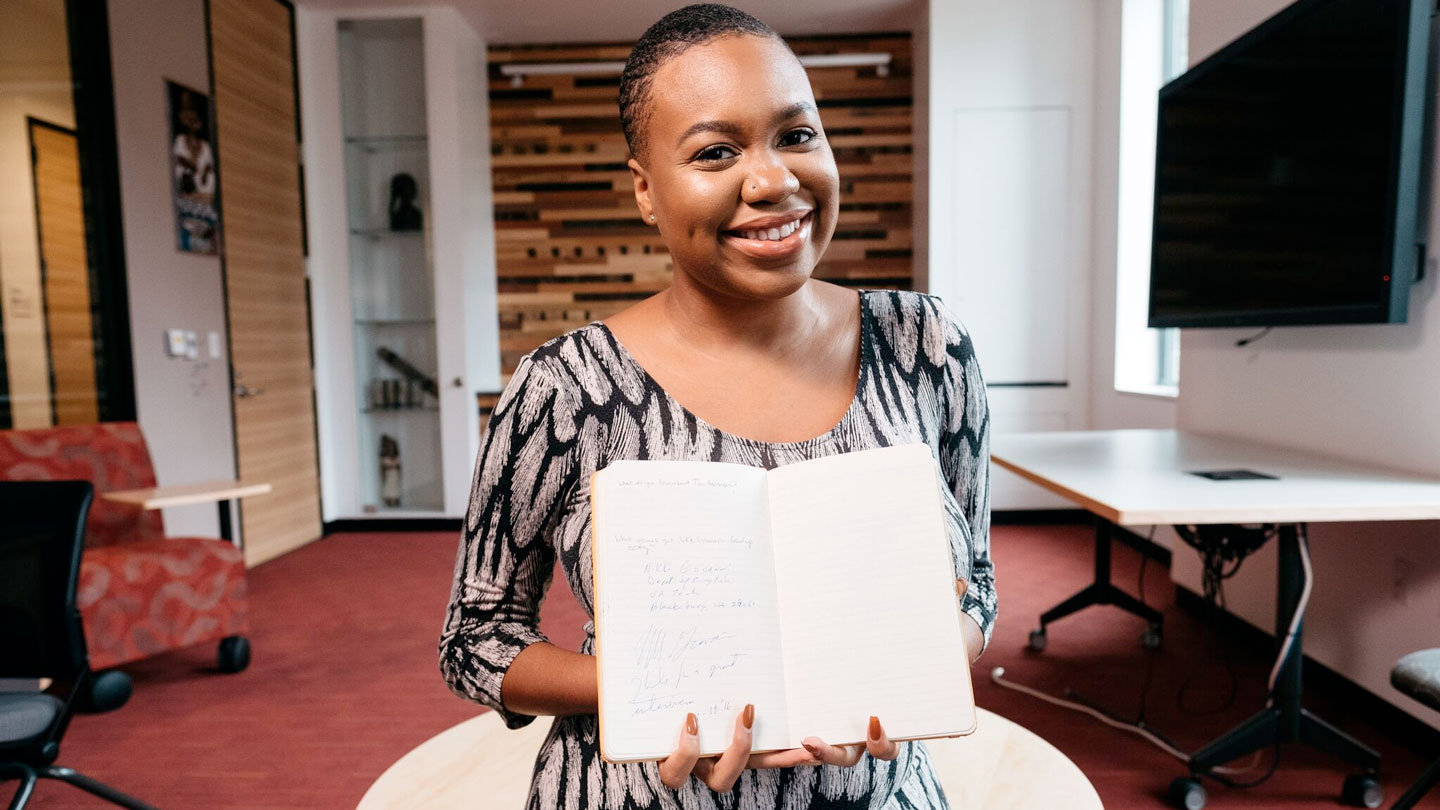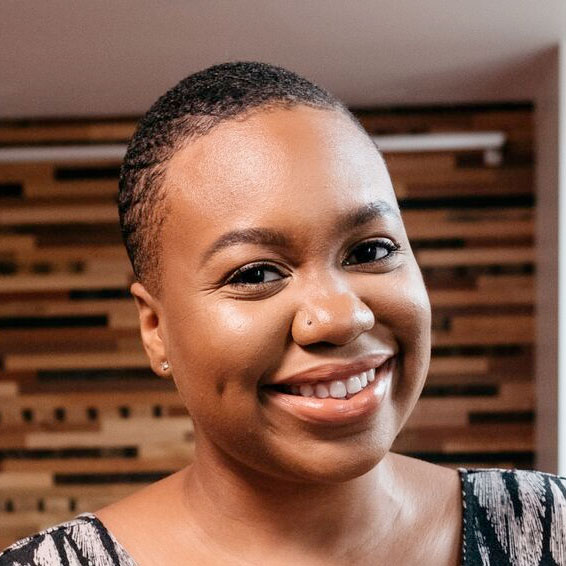What I’m focused on:
“I’m focused very specifically on representations of U.S. imperialism and black women from the U.S. and the Caribbean’s literature. So I look at how they’re writing about U.S. imperial exploits, invasions, occupations, or how they’re describing different imperial economic policies, to not only think through U.S. imperialism but how empires structure relationships between black people throughout the diaspora. Through the lens of literature, partly because so much of state documents about the empire are not really interested in the effects it has on people or necessarily surveying the ugly side of empires. They’re more interested in economic benefits, political benefits, etc. So literature becomes a way to get the underbelly of imperialism and also different representations.”
What I’m excited about:
“I’m excited about teaching. I love teaching. Love engaging with students. I’m also excited about working with people in the library and bringing more resources, particularly with Caribbean literature and Caribbean writing. And I’m also excited to finally be a professor. Seven years in grad school (laughs). This is my first academic job, my first adult real job.”
What you can expect of me:
“You can expect really great, dynamic classes. So I try to offer a range of classes. I also try to get into the community outside classes. I love reading groups with students; I love discussion groups with students. A lot of southern hospitality, you’ll get from me. I think just overall a positive influence on campus and being a great colleague.”
What I’m researching:
“I am working on trying to turn my dissertation into a book. And so one thing I’m looking at very specifically is travels of black women writers in the 1980s. So my whole dissertation was about 20th century black women’s travel writing, but I want my book to be about black feminist intellectuals who are traveling in the ’80s. Particularly because the ’80s was a time when there was a lot of neocolonialism in the Caribbean and the United States. But this also happens to be same time that you have so many black feminist intellectuals traveling to the Caribbean being invited to the Caribbean in their literature. So right now I’m researching a trip sponsored by the Black Scholar of Women Writers to Cuba. So I’m researching that to find out who all went. Audrey Lord along with others, but I’m also trying to see what did they write about, and what did their experience being in Cuba yield as far as their view of U.S. imperialism.”
What I’m hopeful for:
“Here, I’m hopeful to first be in the community and help the students think through the same issues that I’m thinking through. Whether that’s issues of inequality, colonialism, racism. I think students across the country are thinking about these things. So, I’m hopeful I can be someone to help students think through these, provide resources, as well as help them get to the next level – whether that’s professionally or academically, etc. I’m hopeful to be in a community with other great scholars who care about the same issues. Who maybe are not looking at them from the same perspective as me, whether that’s film, history. Just hoping to be impactful and helpful on campus. More generally, I’m hopeful for a more liberatory and truly democratic world. And I do think that writing and literature are ways that we can get to that.”

What I’m holding:
“When I was in grad school, I worked for the Samuel Procter Oral History Program at the University of Florida, and I was a graduate assistant for the Alachua County African American History Project. We interviewed elder African American citizens of central and northern Florida to collect life histories just to better understand life experience in ways that we couldn’t get from textbooks or materials. In the course of doing that, my second to last year there, Nikki Giovanni was invited as the Martin Luther King Jr. speaker that we had annually at UF and so one of my friends who was a graduate student was helping coordinate her visit. And they said, ‘Oh, we’d love to get an oral history with Nikki Giovanni and they said, ‘Would you like to do it?’ (Laughs) So I got to do a 40-minute interview with her, getting a little bit about her life, her perspective on Black Lives Matter, what she’s working on now, and that was exciting, because she’s iconic. She was super down to earth, the most friendly person you can meet, so we did the interview and after the interview we took pictures and after I said, ‘I don’t have a book with me, could you sign this journal’ because as a grad student I kept a journal and wrote every single thought down that I thought might be important or useful later. And that’s all I had on me. And she said, ‘Yes, I’m happy to sign this.’ It was the best interview that I’ve ever done. She wrote her name and also, “Thanks for a great interview.” Also her address at Virginia Tech where she teaches.”
What captured me:
“I always wrote as a child. I was always writing. I always wrote poems. I think that was the first skill that I ever had anyone highlight, like ‘Yes, you’re really good at this.’ So I always loved to write, and I think that just going through grad school and reading more black women writers particularly over the course of the 20th century and the 19th century and just seeing how those women were really trying to change the world with their writing, and in many ways have changed the world with their writing. These very famous fictional characters and fictional places have had a real impact on me and have really spoken to me.”

